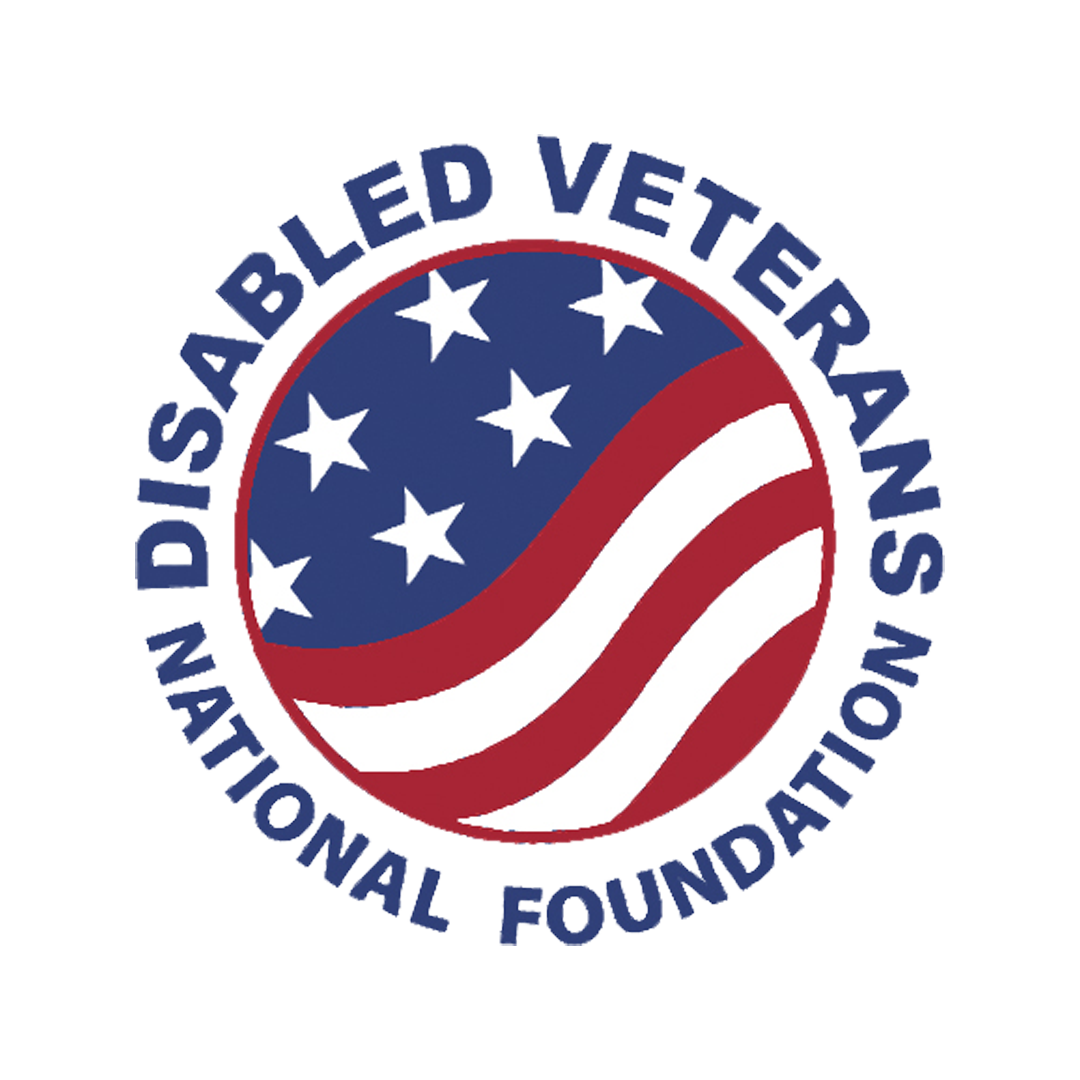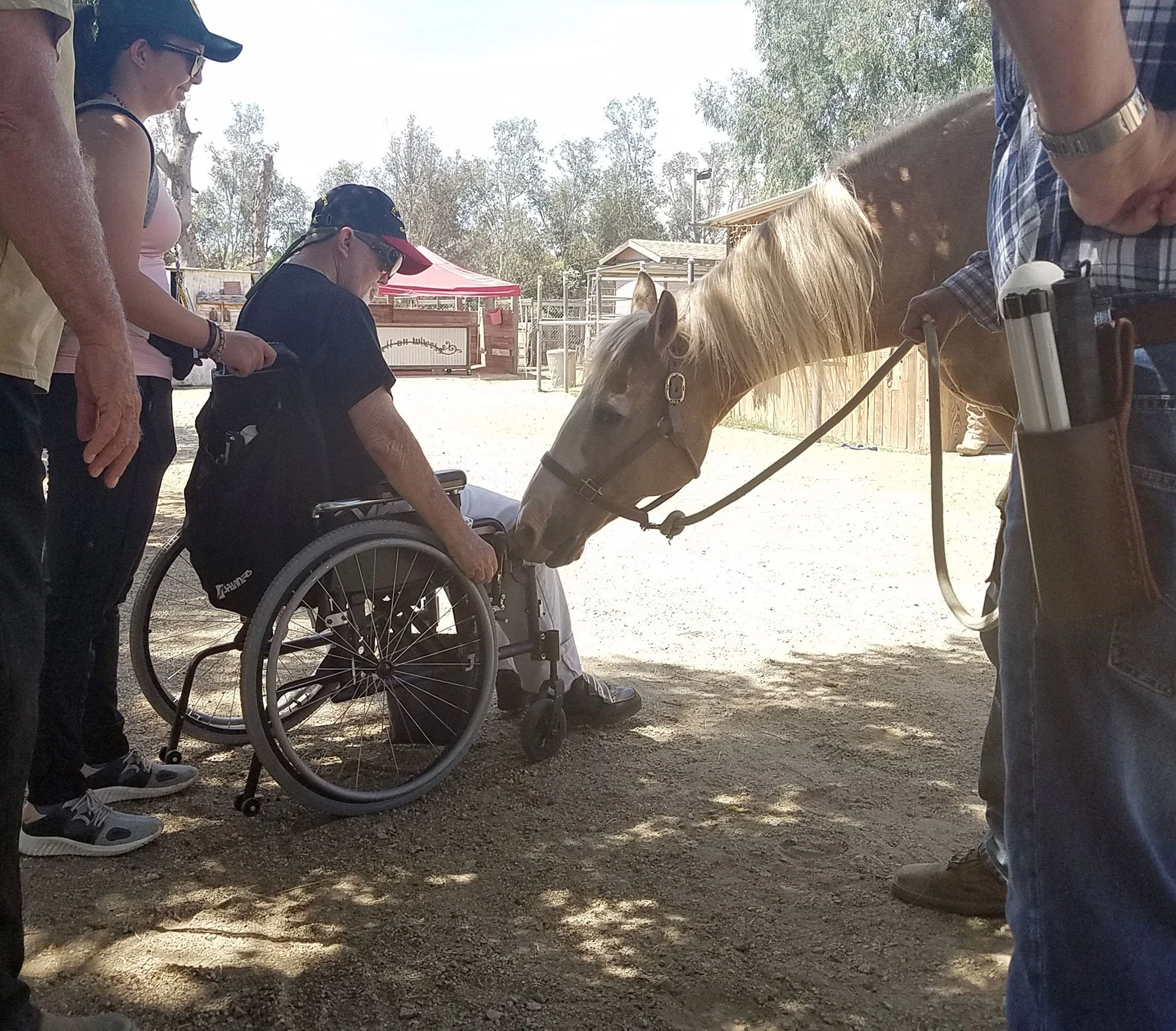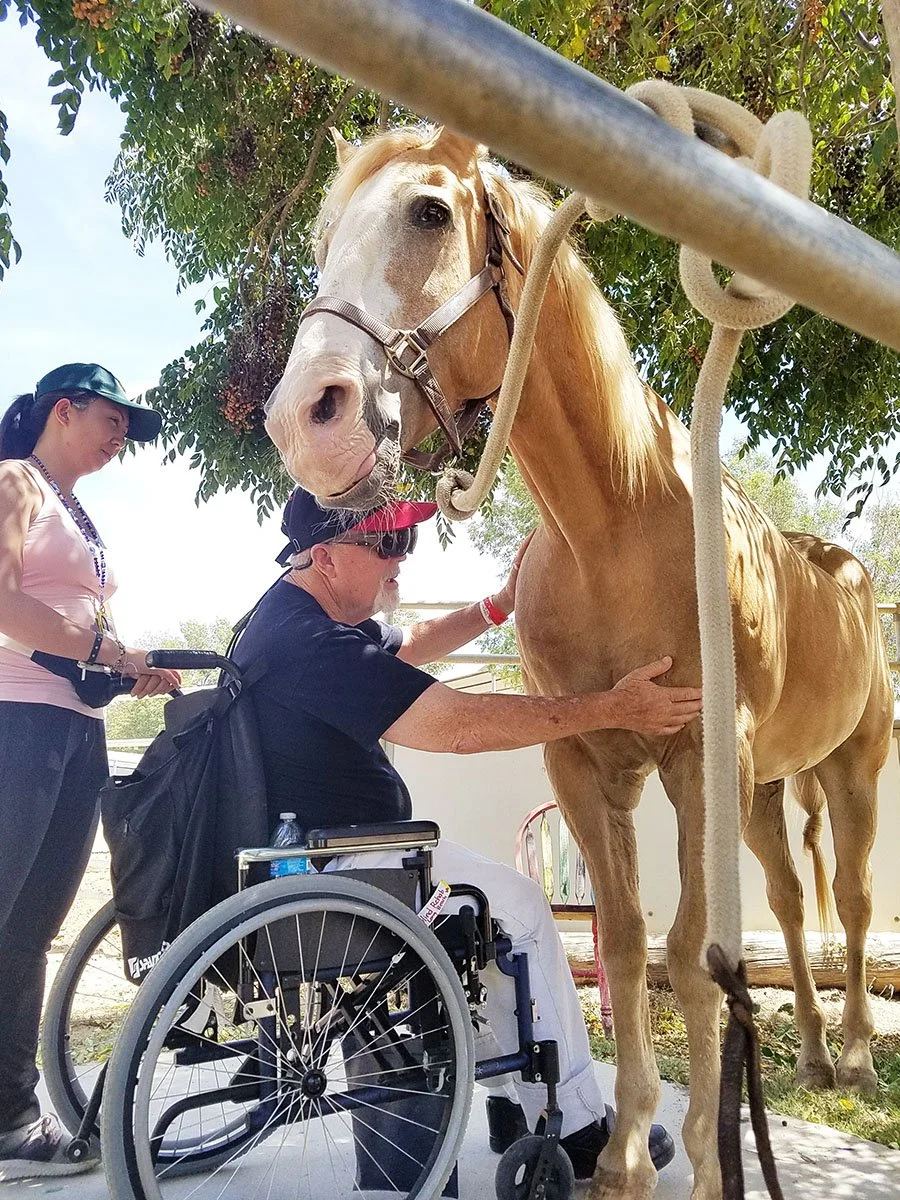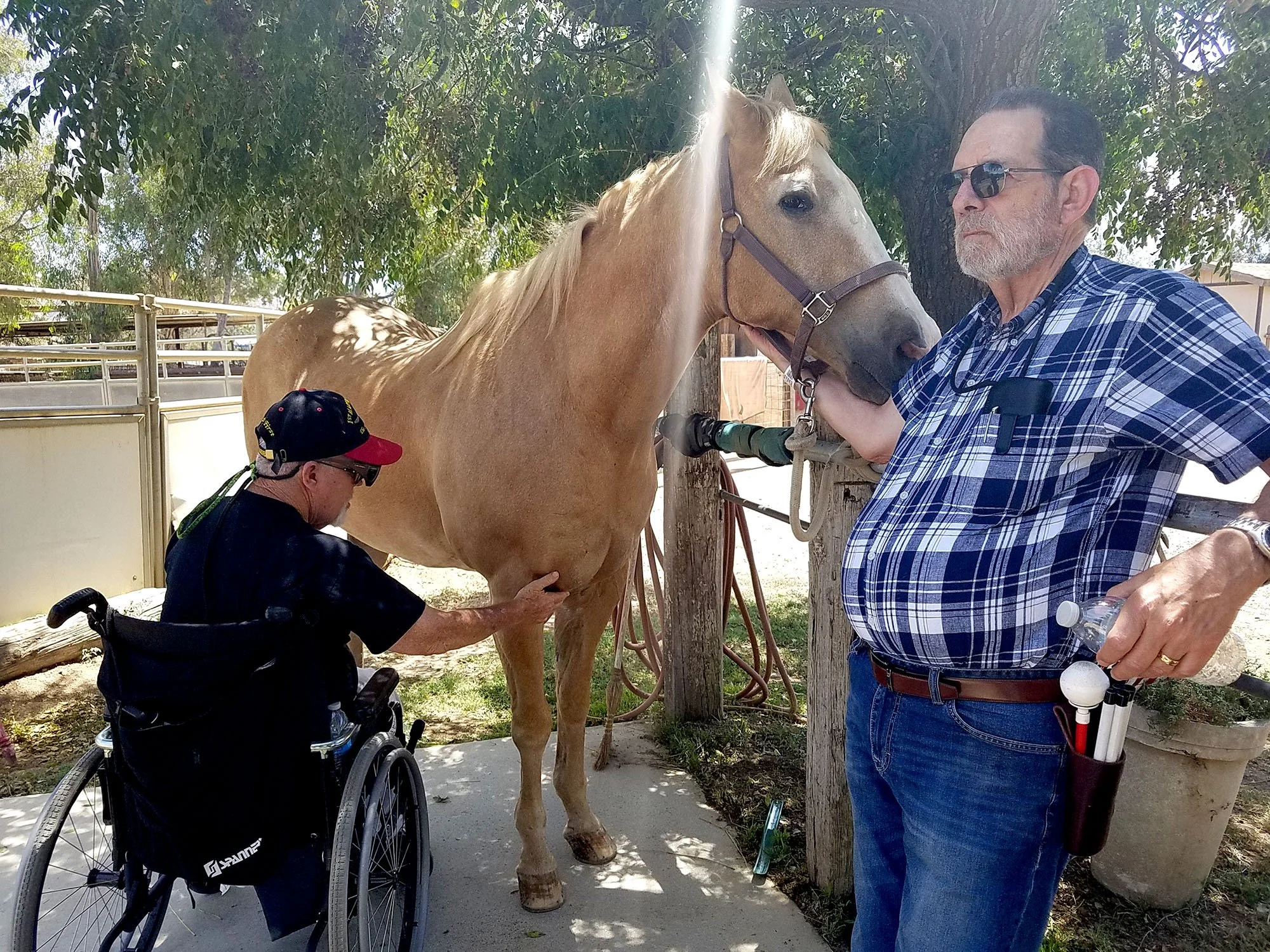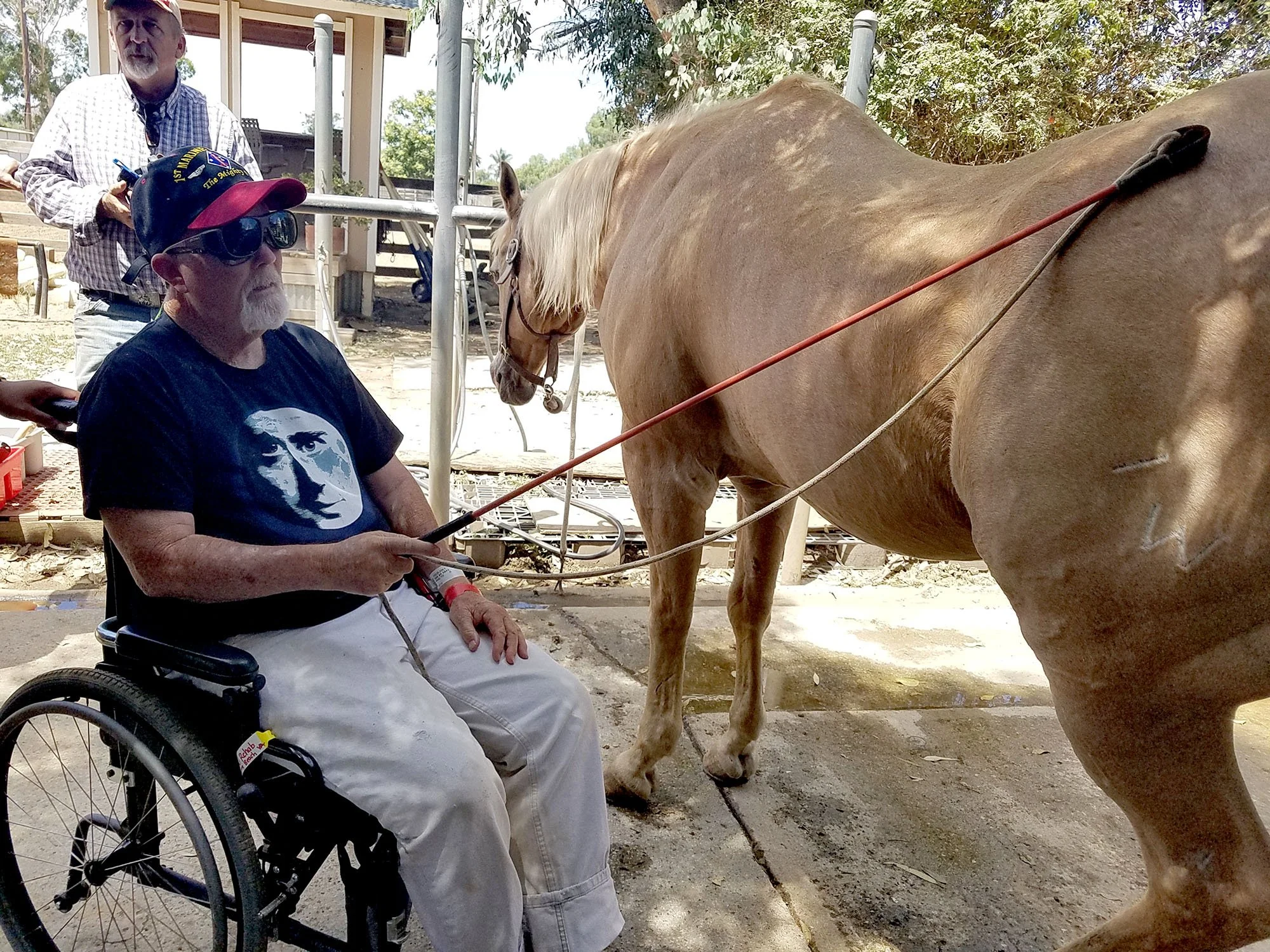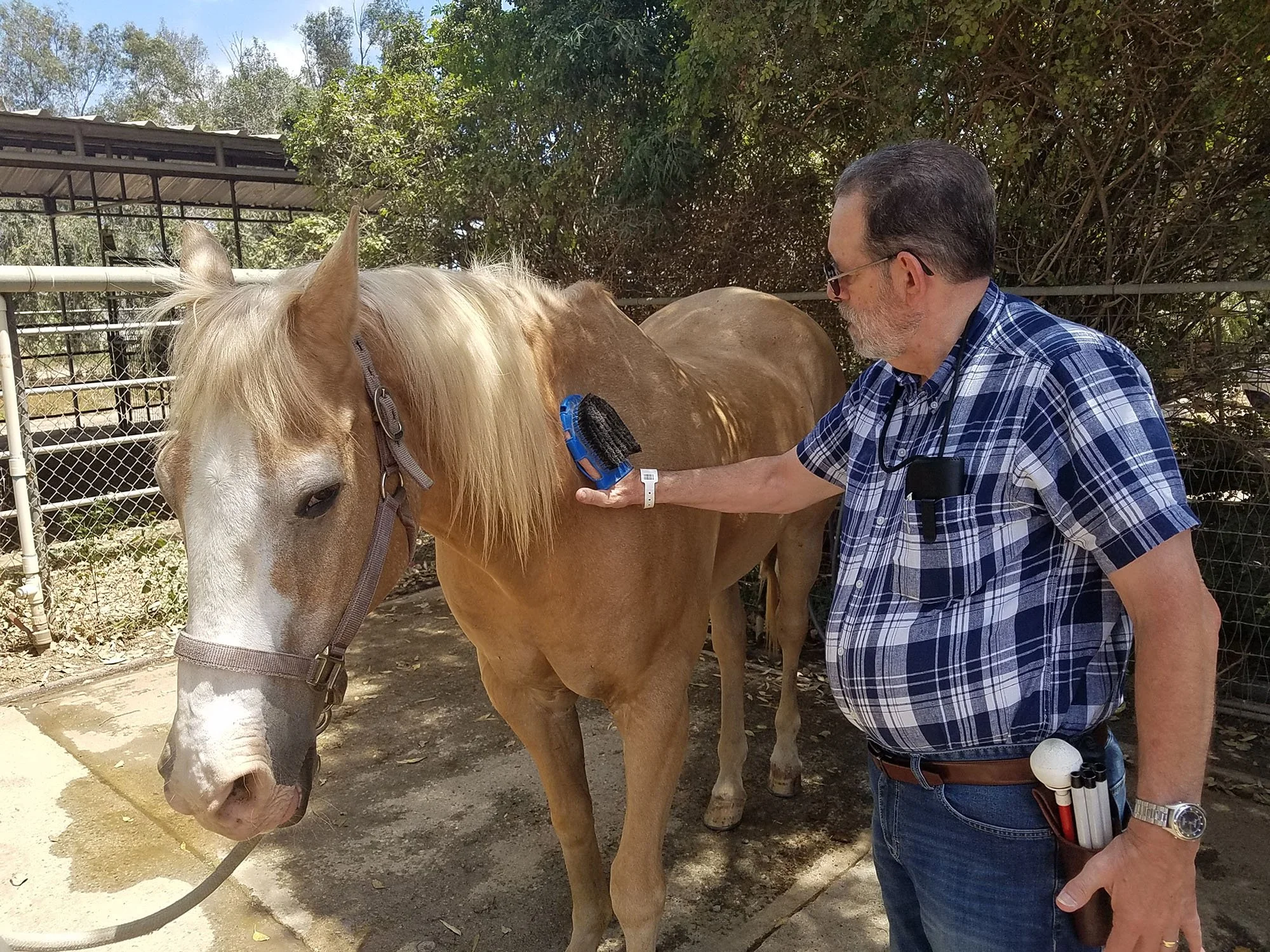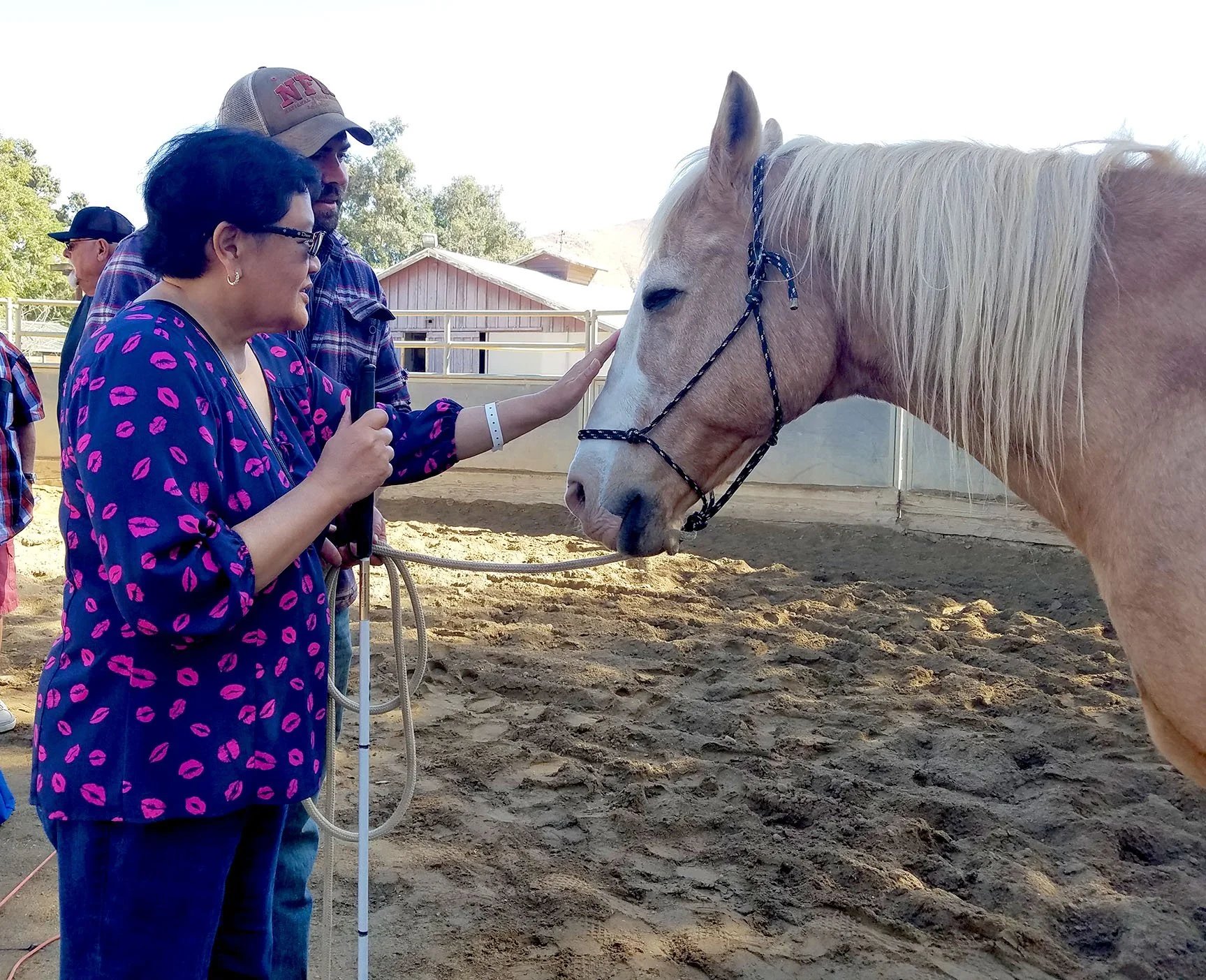Blind Veteran Program
On May 30, 2019, EET received an email from Blind Rehabilitation Center, Long Beach. Their simple introductory sentence, “I serve Blind Veterans who might benefit from the equine therapy” was unexpected and thought provoking. EET had received local recognition from VA Long Beach and others for successful results using horses to provide therapy to veterans who were suffering from traumas such as PTS and MST (Military Sexual Trauma). Veterans were making statements like “life-saving”, and “life-changing”; and, VA management was getting feedback including those comments directly from their veterans.
At the time, we were not aware of the Blind Rehabilitation Center, nor that the Long Beach location provides blind services for a much larger geographical area. Having no experience with blind people, we began to ask questions and search for guidelines and precedents. Thus far we have not been able to find precedents.
Responding to subsequent correspondence, EET provided the VA with “Preliminary Discussion Points, Equine Experience for Blind Veterans”. We were intrigued by their stated Recreation’s Purpose:
Is not to kill time but to make life;
Not to keep a person occupied but to keep them refreshed;
Not to escape from life but discovery of life.
After examining all the reasons not to extend equine therapy to blind veterans, in collaboration with the VA, EET found solutions to critical questions such as safety, area familiarization, logistics etc. As a result, EET could clearly envision adaptation of proven EET equine therapeutic techniques to equine therapy for blind veterans. It became clear that self-trust, mutual trust, feel, touch, presence, and equine communication combined with the power and magic of the horse could be achieved with blind veterans. Other positive outcomes for blind veterans appeared to be within reach.
We are blessed with a marvelous horse named Rags. He is certified and has deployed for many years with the Los Angeles County Sheriff’s Department mounted posse. Rags has worked with at-risk children, autistic people, in crowds, on the beach, in traffic, with myriad sensory conditions. With his partner Mike Dunne a near-perfect trust existed that we expected would allow new sensory stimuli such as wheelchairs, canes, walkers etc. to be introduced calmly without movement or dangerous reactions.
From the first program with 3 veterans conducted at our partner ranch in Norco CA, we observed the extraordinary personal assets of blind veterans in their heightened senses of touch, feel and presence, each of which resonated with the horses. Horses visually responded. Very rapidly, hesitation and reservation were replaced by mutual affection and respect.
In groups of 2-4 blind veterans, 9 programs have been conducted to date. A VA therapist has accompanied each group and participated. Collaboration and feedback regarding therapeutic efficacy have been essential. The therapists have been able to see the reactions of the veterans and the therapeutic value firsthand.
Commemorative hard bound booklets are provided to each participant; and, the follow up by the VA is confirming that the veterans’ experience is timeless.
This program is provided by EET at no cost to the veterans and no cost to VA. Collaboration and avoiding duplicate expense allow these programs to keep expenses low and outcomes high.
The EET program of Blind Trust is considered to be fully scalable if horse, VA staff, and capable horse clinicians are willing to explore local mutual trust.
All our training facilities, instructors and programs are located in Southern California. All EET programs are free to veterans.




